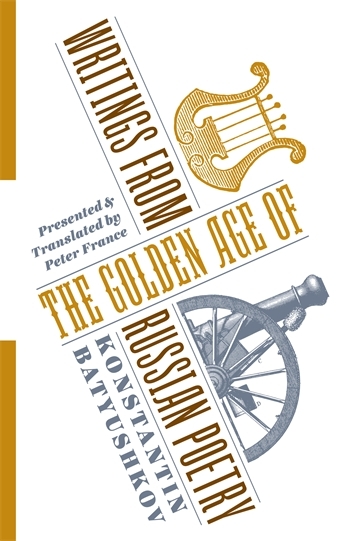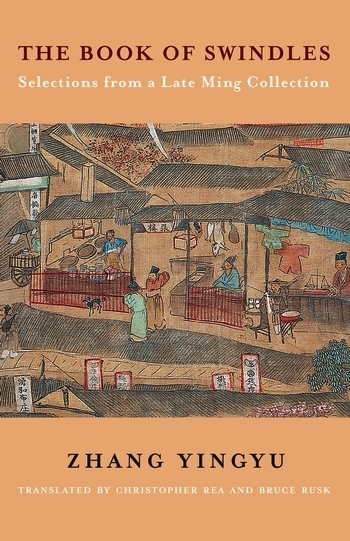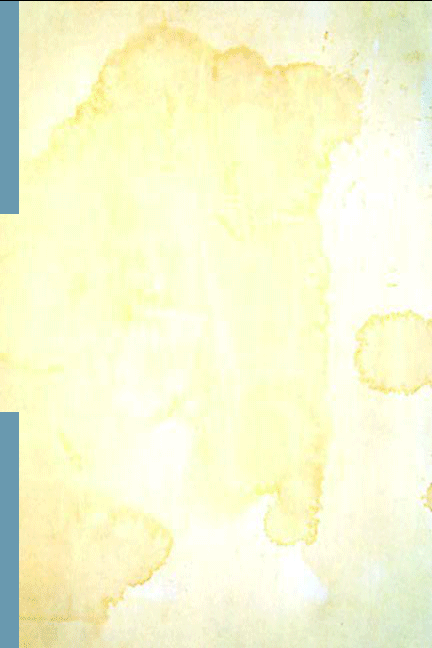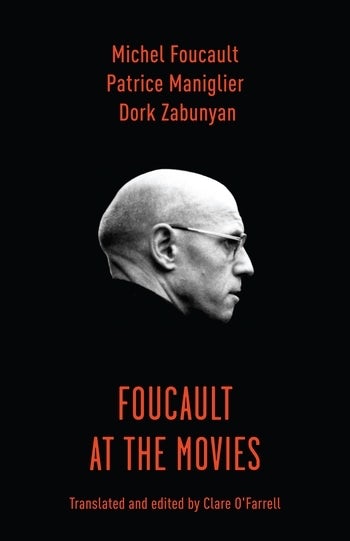Peter France On the Poet Konstantin Batyushkov

September is National Translation Month, a time to celebrate literature in translation. Throughout the month we have been sharing excerpts and guest posts but have devoted Saturdays to featuring poetry titles. Today we have a guest post written by Peter France, the translator and presenter of the poetry of Konstantin Batyushkov in Writings from the Golden Age of Russian Poetry, which was published in our Russian Library series.
Praised by Alexander Pushkin, elegized by Osip Mandelstam, and rumored to be the inspiration for Leo Tolstoy’s character Pierre Bezukhov in War and Peace, Konstantin Batyushkov was one of the great poets of the Golden Age of Russian literature. In the post below, as in his genre-defying book that blends biography and anthology, Peter France introduces English language readers to the poet who Pushkin said “did for the Russian language what Petrarch did for Italian.”
• • • • • •
When in 1821 John Bowring introduced the poets of Russia to an ignorant British public, he gave pride of place to Konstantin Batyushkov, quoting him in Russian on the title page. But since then Batyushkov has been lost to view in the English-speaking world. My aim in Writings from the Golden Age of Russian Poetry has been to give him a new life for at least a few of today’s readers. I’m inspired by the words of another little-known poet of Russia’s Golden Age, Yevgeny Baratynsky:
… one day
a distant fellow-man will read my words
and find my being, and who knows, my soul
will raise an echo in his soul and I,
who found a friend in my own time,
will find a reader in posterity.
So how do you go about this? With Baratynsky I adopted the familiar format of a bilingual edition of poems and translations, together with an introduction. But for Batyushkov it seemed worth trying a new approach – threading translations of his poems, prose and letters on to the story of his life. For it was quite a life, not unlike that of Prince Andrey and Nikolay Rostov in War and Peace: torn from the world of peace (Moscow, St Petersburg, the Russian countryside) by successive campaigns against Napoleon, having his close friend Petin killed in battle, marching into Paris with the Russian army… Then, after a resounding success as a poet, Batyushkov is forced by lack of funds to take up an uncongenial posting at the Russian mission in Naples, from which he emerges a shaken man, tipping rapidly into the incurable mental illness in which he spends his last thirty silent years. The poems take their place in this narrative, poems of friendship, love, war and depression, through which his art grows steadily stronger, reaching a paradoxical summit in the marvelous ‘Imitations of the Ancients’, written as he slid into insanity:
Life without death’s not life. What is it then? A bowl
With a drop of honey in a sea of wormwood.
Magnificent the ocean! Azure king of the desert,
O sun, you are a wonder amid heaven’s wonders!
And there is much beauty on the earth!
Yet silver is all counterfeit and pointless.
Weep, mortal, weep! Your earthly fortune
Is in the hands of ruthless Nemesis.
It’s a moving story, with a brilliant, idiosyncratic, tragic hero – who is above all a poet. Worryingly for his translator, his verse was praised by contemporaries for its sonorous beauty – like that of the Italians he so loved. For the young Pushkin he was a model of light-hearted, beautiful, Epicurean poetry – even though he disappointed Pushkin by moving beyond this youthful wine-and-roses stance. Like all his friends, he placed great weight on form. So how should one translate this formal poetry? It’s possible to take an absolutist stand, either saying (with Brodsky) that the essence of the poem is in its formal qualities, shape, rhyme, meter, etc, or claiming (with Pasternak) that you have to free yourself of the outer form to capture the inner essence. In practice, most translators negotiate between the two extremes, particularly with regard to rhyme, where they can use all the resources of slant rhymes, assonance and the like. Mostly I thought it best to stay close to Batyushkov’s metrical and stanzaic patterns. In retrospect, though, I’m not sure this was always for the best. For instance, the great poem about the burning of Moscow addressed to his friend Dashkov is written in iambic tetrameters (four beats to a line) – which gives, for the first eight lines:
My friend, I’ve seen a sea of evil,
The punishments of vengeful heaven,
The fury of our enemies,
War and its devastating fires.
And I have seen the rich, the crowd
Of fugitives in tattered clothes,
And poor mothers pale as shrouds
Driven from their cherished homes.
But looking back, I find that my first, more spontaneous translation uses the trimeters characteristic of Batyushkov’s light society verse, and I’m not sure I was right to abandon them:
My friend, I’ve seen a sea
Of evil, heaven’s vengeance,
Our pitiless enemies’ deeds,
War and its deadly fires.
I’ve seen the rich in hordes
Fleeing in rags and tatters;
I’ve seen the pallor of mothers
Driven from their dear land.
Translating poetry is an unending labour – it’s rare to feel that anyone has produced a definitive version.
There are lots of truisms that haunt discussions of translation, one being that if there’s one kind of writing that can’t be translated, it’s translation. That’s a dubious proposition – think of North’s Plutarch, translated from Amyot, or all the metamorphoses of Ossian, itself supposedly a translation from Gaelic. Batyushkov translated a great deal – some of his most successful poems are free translations from Italian, French and Latin, or even Greek by the medium of French. All of these poems can in their turn become English – the trickiest thing being when the original is in English. Batyushkov seems to have been the first Russian translator of Byron – just a fragment from Childe Harold, recreated in Russian from the first Italian translation, and a splendid poem in its own right. I made a shot at turning this back into an English poem, though it’s bound to suffer when compared with Byron’s splendid original (‘Roll on, thou deep and dark blue ocean, roll!’). Nevertheless, in this way translators too play an essential part in the ceremony evoked by Osip Mandelstam in his poem addressed to Batyushkov:
like blood samples, from glass to glass
keep pouring your eternal dreams.
• • • • • •
Find out more about Konstantin Batyushkov in Peter France’s introduction to Writings from the Golden Age of Russian Poetry and read one of Batyushkov’s poems in full below.
SHADE OF A FRIEND
Sunt aliquid manes: letum non omnia finit
Luridaque evictos effugit umbra rogos
(Propertius)
I sailed from the misty shores of Albion;
Beneath the leaden waves I seemed to see them sink.
In the ship’s wake fluttered the halcyon
And with its quiet singing cheered the sailors’ work.
The evening breeze, the billows’ buffeting,
The same unchanging noise, the beating of the sails,
And on the deck the helmsman’s cry
To the lookout who dreamed above the murmuring waves,
All these were food for my sweet reverie.
As if in an enchantment I stood by the mast,
And through the misty air and the gray night
My eyes were seeking my beloved Northern Star.
My thoughts were all engulfed in memory
Of my dear native land and of my native sky.
But the wind’s music and the rocking sea
Weighed on my eyes with languorous oblivion,
And dream succeeded dream
And suddenly . . . was I asleep? . . . I saw the friend
Who perished in the fateful fight
And by the Pleisse’s waters met his noble end.
But the sight brought no fear; his brow
Preserved no trace of his deep wounds,
And like an April morning shone with joy,
Bringing the light of heaven to my mind.
“My dear friend, is it you, comrade of my best days?
Can it be you?—I cried—ever beloved warrior!
Did I not weep at your untimely burial,
Lit by the fearful glare of martial flames,
Did I not with true friends inscribe
Your valor with the sword’s edge on the wood,
Accompanying your soul to its celestial home
With groans and prayers and tears?
Shade of the unforgotten, dear friend, speak!
Or was the past all only a mirage, a dream,
All, the pale corpse, the grave, the solemn rite
Performed by friendship to your memory?
O, say one word to me! Let that familiar sound
Once more caress my eager ear,
And let me, o my unforgotten friend,
Press your hand lovingly in mine! . . .”
And I flew to him . . . But the ethereal shade
Vanished in the blue depths of cloudless sky
Like smoke, a meteor, or a nightmare vision,
And sleep fell from my eyes.
Beneath the canopy of silence all was sleeping;
The fearful elements seemed to make no noise.
From a thin veil of cloud the moon shone down,
The waves lay dark, the breeze was barely stirring,
But sweet tranquility had gone from me,
My soul flew where the shade had fled,
Still longing to detain its heavenly guest—
You, my dear brother, my beloved friend!







